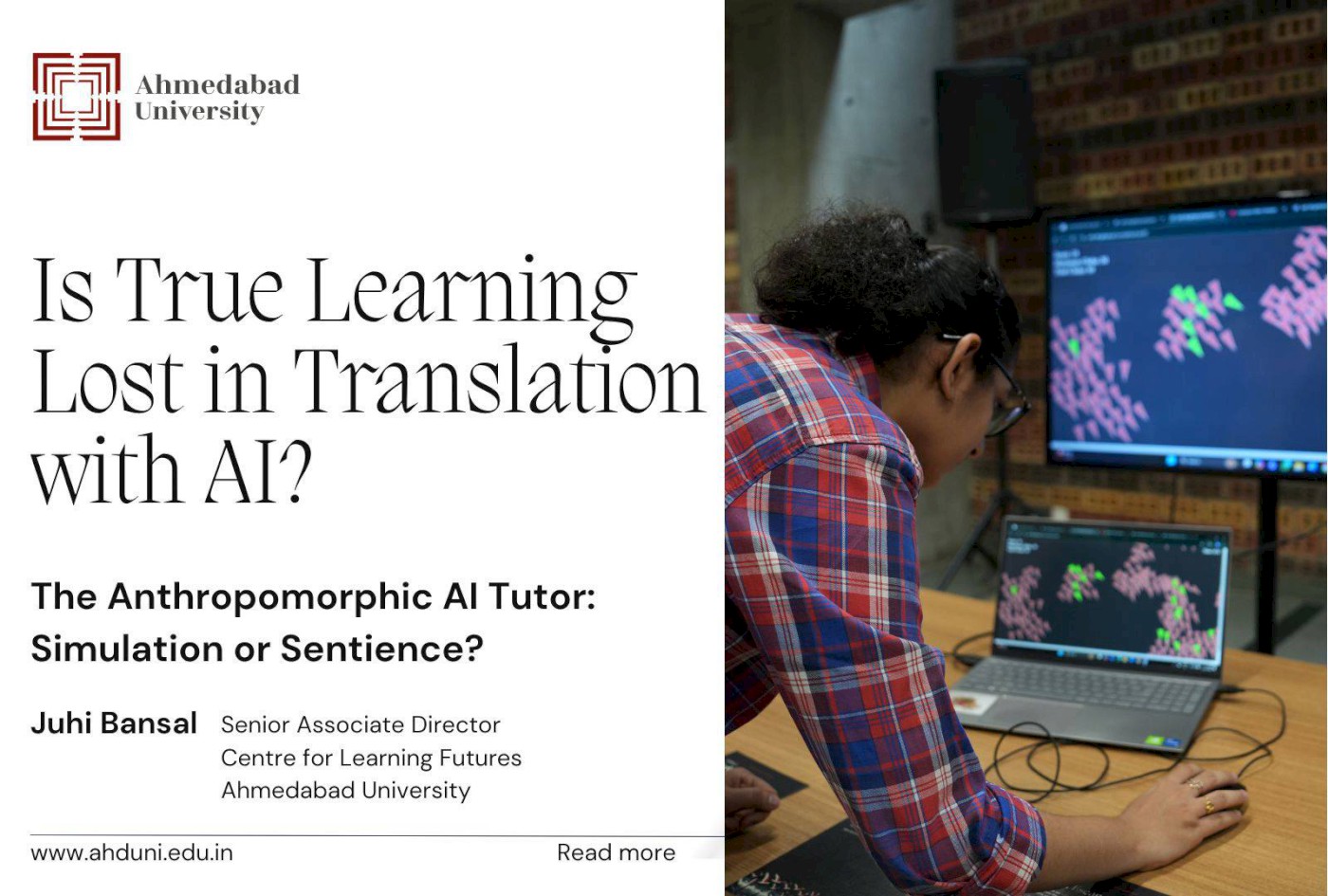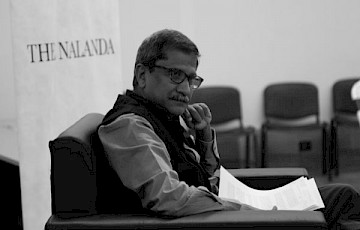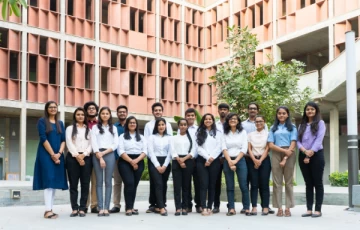14 April 2025
Is True Learning Lost in Translation when AI Takes Over Classrooms?

As artificial intelligence increasingly paves its way into education, Juhi Bansal, Senior Associate Director at Ahmedabad University’s Centre for Learning Futures, investigates a fundamental question: Should we design AI to teach in a way that mirrors human educators? And if so, what's the ultimate goal? Her recent paper, The Anthropomorphic AI Tutor: Simulation or Sentience?, engages with this dilemma by analysing the intersections of neuroscience, linguistics, computer science, philosophy, and educational theory. Her study goes beyond a technical evaluation of the capabilities of AI. It probes how making AI teaching tools more human-like actually shapes the learning environment- and whether these tools truly teach or merely simulate the act of teaching.
Anchored in Bloom’s 2 Sigma Problem, which shows that individual tutoring outperforms classic classroom instruction, the paper measures AI’s potential to replicate such individualised learning experiences. However, the author cautions that human teaching is not defined solely by accuracy or delivery of the content. Emotional nuance, ethical judgment, and spontaneity remain areas where AI continues to fall short.
The paper criticises the current large language models—described as “stochastic parrots”—for their inability to truly understand or contextualise meaning, highlighting the shortcomings of AI-generated instruction. As AI systems become more life-like, the phenomenon of the Uncanny Valley also emerges as a pedagogical barrier, where users instinctively reject AI agents that are nearly, but not quite human.
A case study in Nigeria demonstrates that while AI tutors can initially boost classroom engagement, their long-term educational value remains mixed. The study draws on John Searle’s Chinese Room argument and the philosophical idea of qualia, which is the inner, subjective texture of human experience and argues that AI lacks the consciousness that gives human teaching its transformative depth. Without this interiority, the paper suggests, AI cannot replicate the relational or experiential components of human pedagogy.
This kind of inquiry and investigation exemplifies Ahmedabad University’s commitment to interdisciplinary, and socially relevant research. Through its centres like the Centre for Learning Futures, Ahmedabad University enables its community members comprising faculty, staff, researchers, scholars, and students, to navigate questions that cross disciplinary borders, encouraging work that blends rigorous analysis with broader humanistic inquiry. In a time when AI is rapidly reshaping institutions and interactions, the University encourages reflection on what should be automated, what must remain human, and how both can coexist with harmony. Such studies are essential in shaping ethical and effective futures for technology in education.
Published and circulated through academic networks, The Anthropomorphic AI Tutor contributes meaningfully to current global debates on AI in education- not simply as a tool, but as an increasingly present agent. It reminds us that as we build machines that teach, we must not lose sight of what it truly means to learn.
Learn more about author Juhi Bansal’s thoughts here.



